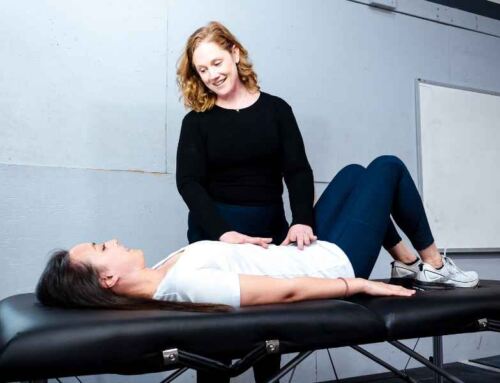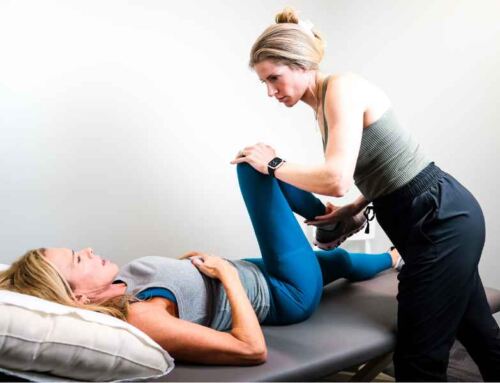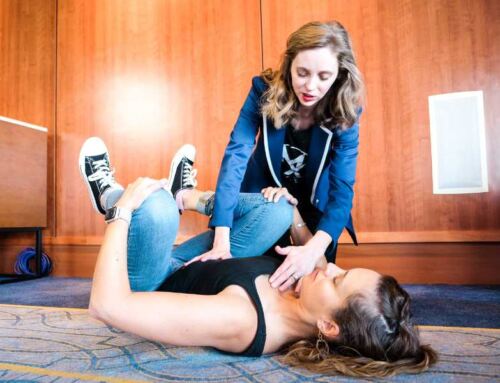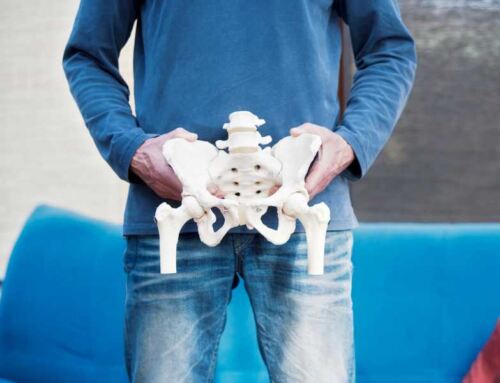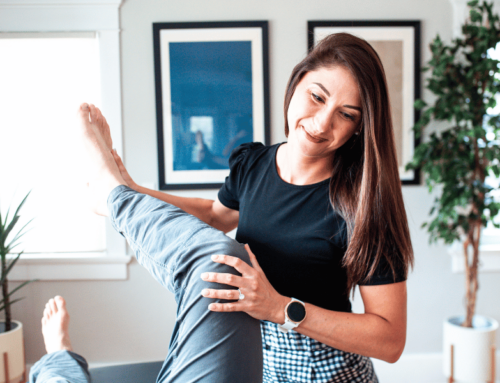Self Care Secrets for Relieving Lower Back Pain During Pregnancy
What can you expect when you’re expecting? Well, a whole lot of physical changes, which can leave you feeling achy and sore.
Low back pain is a common physical complaint during pregnancy, so let’s dive into why this happens and what people who are pregnant can do about it.
What’s Going On In My Back During Pregnancy?
Pregnant folks are no stranger to back pain, which can occur because of several reasons…
Weight Gain
Weight gain varies widely between people and pregnancies. About 50% of weight gained during pregnancy is from the fetus, placenta, and amniotic fluid. 25% is from the uterus and breasts. The remaining 25% is maternal body fluid as blood volume increases. More weight means more stress on your tissues, which can sometimes lead to back pain.
Posture
The uterus expands more rapidly after 20 weeks of pregnancy, which changes your center of gravity. This can increase a forward head posture, round your shoulders forward, and cause your pelvis to tilt forward as the uterus gets heavier. The result? Lots of stretch across the abdomen and shortening of the muscles in the lower back.
Gait Changes
The hips externally rotate and your base of support widens to keep you stable, which changes the mechanics of your legs and back during walking.
Joint Laxity
The hormone relaxin gets all the credit for making your body feel like a wet noodle during pregnancy, but there’s not a lot of evidence to suggest that this happens in your low back specifically. However, a pregnant person can experience significant pain when the pubic symphysis (where the two halves of the pelvis join) spreads further apart or is asymmetrical due to excessive joint laxity.
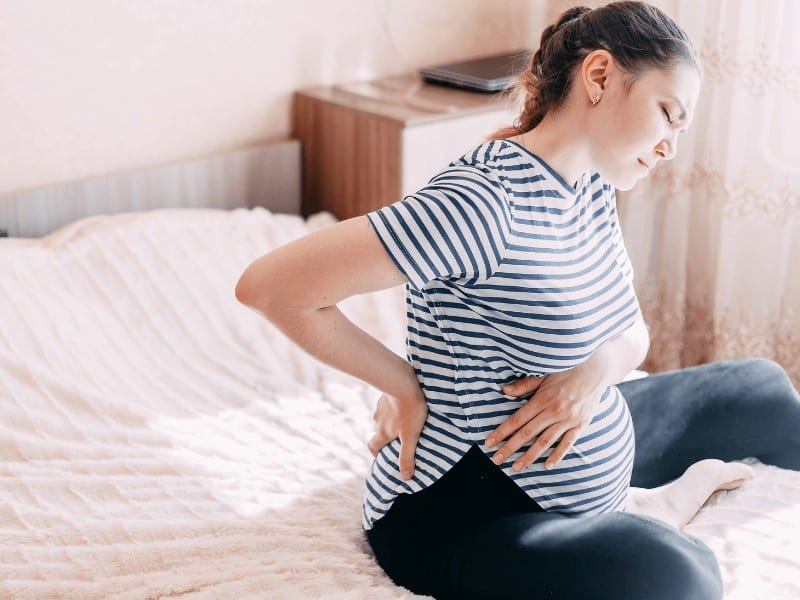
How Can I Reduce My Back Pain?
- Apply Heat: Heat can feel amazing, but it can be tricky to find the right modality. Steer clear of saunas, hot tubs, and searing hot baths for now, or anything that raises your core body temperature or uterine temperature. A heat pack on a low setting can improve blood flow and reduce pain.
- Wear a sacroiliac (SI) joint belt: This can help provide additional support to the pelvis, especially in the case of pubic symphysis pain. These belts fit low around your hips and help the two halves of the pelvis to fit together more snugly.
- Use a maternity belt: Like SI joint belts, these are support devices that wrap around your abdomen, which can help to offload the weight of your growing belly.
- Find a Pool: Water is magical for its properties of buoyancy and hydrostatic pressure, meaning that feeling lighter in the pool can do wonders for back pain. Swimming can be great, but so can simply walking in the water!
The Best Stretches for Pregnancy-Related Low Back Pain

Child’s Pose Stretch
From a kneeling position, widen your knees apart to create a V shape, and walk your hands forward until your chest and belly are between your thighs. Depending on your stage of pregnancy, use as many pillows/bolsters under the chest as you need to be comfortable.

Cat/Cow Stretch
In an all-fours position, round your spine and tuck your chin to your chest, as much as your belly allows. Reverse the position, tilt your tailbone up and gaze upward. Alternate between these two positions slowly and mindfully.
How Can a Physical Therapist Help Me?
A physical therapist can perform specialized hands-on treatments to help further reduce your back pain—including manual massage, soft tissue mobilization, or restoring alignment of your pelvis. Physical therapists can also prescribe individualized exercises to reduce your pain and help you navigate support devices like an SI belt or a maternity belt.
If you’re currently experiencing back pain in pregnancy, don’t hesitate to set up a session today!
About the Author
Dr. Molly Morgan is a physical therapist and pelvic health specialist with MovementX in Portland, OR. She believes that it’s imperative to have a strong, functional foundation in the pelvic floor. Molly Morgan is passionate about treating a variety of pelvic floor conditions, lumbosacral dysfunctions, and hip pain. She is committed to providing one on one care to meet you needs and work towards your goals.



